Talking about what you like to do in French
Moi, 凉aٱme le sport!
Jâaime le foot - I like football.â
âElle aime le cyclisme - She likes cycling.â
And if you donât like something you sandwich the verb between ne and pas.
Je nâaime pas la natation - I donât like swimming.
And if you're talking about something you do in your spare time jouer to play - âis really useful. â
Je joue au basket - I play basketball. â
Elle joue de la guitare - She plays guitar.
Then thereâs faire to doâ.
Je fais de la gymnastique - I do gymnasticsâ.
Phew! Il y a beaucoup de choses Ă jouer et Ă faire!
There are lots of things to play and to do!â
Talking about sports
To say that you play or do a sport, you use jouer Ă (to play), if itâs a ball sport, or faire de ââ(to do) if itâs any other sport:â
- Je joue au hockey - I play hockey.â
- Je fais du ski - I go skiing.â
After jouer Ă and faire de, you need to use a (the word âtheâ). In French, âthere are four different ways of saying âtheâ, depending on whether a noun is masculine, âfeminine or plural, or if it starts with a vowel or silent âhâ. The words for âtheâ change âafter Ă and de as follows:â
| Masculine | Feminine | Before a vowel or silent ââ'h'â | Plural | |
|---|---|---|---|---|
| Definite article ââ('the')â | le | la | l' | les |
| after Ă | au | Ă la | Ă l'â | aux |
| after de | du | de la | de l'â | des |
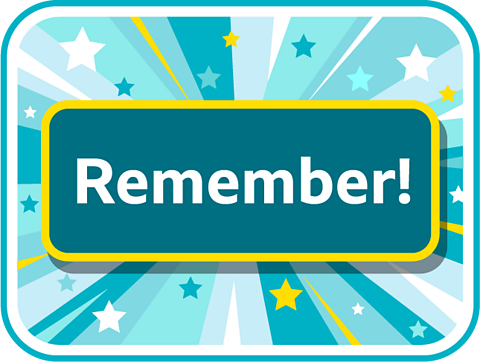
Most sports in French are exactly the same or very similar to the English words âand all ball sports are masculine, except la pĂ©tanque (ČúŽÇłÜ±ô±đČő).â
These sports all use jouer Ă (to play), so you would say je joue au or je joue Ă la and then âthe sport:â
- le foot - football
- le rugby - rugby
- le hockey - hockey
- le tennis - tennis
- le netball - netball
- le cricket - cricket
- le handball - handball
- le badminton - badminton
- le golf - golf
- le volley - volleyball
- le basket - basketball
- le ping-pong - table tennis
- la pétanque - boules
Examples
- Je joue au handball - I play handball.â
- Mon pĂšre joue au golf - My dad plays golf. â
- Mon copain français joue Ă la pĂ©tanque - My French friend plays boules.â
With these sports, you need to say faire de (to do). You would either say je fais du, je fais âde la or je fais de lâ and then the sport:â
- le ski - skiing
- le snowboard - snowboarding
- le vélo / le cyclisme - cycling
- la natation - swimming
- la boxe - boxing
- la danse - dancing
- la gymnastique - gymnastics
- la pĂȘche - fishing
- le skate - skateboarding
- le karaté / le judo - karate / judo
- le parkour - parkour
- ±ôâałÙłó±ôĂ©łÙŸ±ČőłŸ±đâ - athletics
- ±ôâĂ©qłÜŸ±łÙČčłÙŸ±ŽÇČÔ - horse-riding
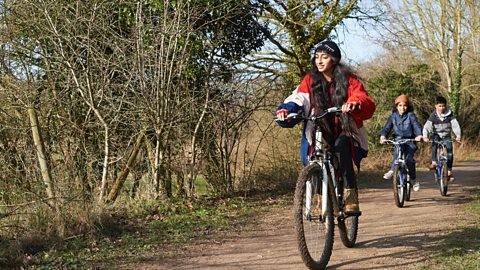
Image caption, Je fais du vĂ©lo - I go cycling*â
1 of 3
â*Faire is sometimes translated in English as âto goâ rather than âto doâ eg âI go cyclingâ ârather than âI do cycling.â â
Talking about likes and dislikes
There are a few ways of giving your opinion of different activities. If your opinion is âpositive, you can say ÂáâaŸ±me bien (I like) and if itâs negative, you can say je nâaime pas (I âdonât like):â
- Jâaime bien le foot - I like football.â
- Je nâaime pas le rugby - I donât like rugby.â
Here are some other useful opinion phrases:â
| French | English |
|---|---|
| Âáâa»ćŽÇ°ù±đ | I love |
| je préfÚre | I prefer |
| je déteste | I hate |
| mon sport prĂ©fĂ©rĂ©, câestâŠâ | my favourite sport isâŠâ |
After these expressions, you can use an (the basic form of a verb, which has not âbeen conjugated), such as jouer (to play) or regarder (to watch).â
To ask someone what they like doing in their free time, you can say:â
- Quâest-ce que tu aimes faire pendant ton temps libre? - What do you like doing âin your free time?â
To give a reply, you can use one of the opinion phrases above, and then say the activity:â
- Jâaime Ă©couter de la musique - I like listening to music.â
- Ma copine Wendie adore jouer du piano - My friend Wendie loves playing the âpiano.â
- Mon frĂšre prĂ©fĂšre regarder la tĂ©lĂ©vision parce que câest intĂ©ressant - My brother âprefers watching TV because itâs interesting.â
- Je dĂ©teste jouer aux jeux vidĂ©o parce que câest ennuyeux - I hate playing video âgames because itâs boring.â
- Tu nâaimes pas jouer sur ton portable? - Donât you like playing on your phone?â
For more useful expressions to use to talk about free time activities, click on the downloadable vocabulary list below:â

Talking about what you and others did in the past
To talk about what you or other people did in the past, use ÂáâaŸ± (I have), tu as (you have), âil a (he has) or elle a (she has) and a past participle such as ÂáŽÇłÜĂ© (played) or °ù±đČ”Čč°ù»ćĂ© ââ¶Ä(·ÉČčłÙłŠłó±đ»ć).â
To ask someone what they did last weekend, you can say:â
- Quâest-ce que tu as fait le week-end dernier? - What did you do last weekend?â
You can talk about other past activities using one of the following past time phrases:â
| French | English |
|---|---|
| hier | yesterday |
| hier soir | yesterday evening / last night |
| lundi dernier | last Monday |
| la semaine derniĂšre | last week |
| le mois dernier | last month |
| lâannĂ©e derniĂšre | last year |
| lâĂ©tĂ© dernier | last summer |
| lâhiver dernier | last winter |
To give a reply, you need to use a form of avoir (to have) followed by a past participle:â
- Jâai ÂáŽÇłÜĂ© au basket hier - I played basketball yesterday.â
- Jâai fait de la natation la semaine derniĂšre - I went swimming last week.â
- Hier soir, ma demi-sĆur a Ă©coutĂ© de la musique - Yesterday evening my step-âsister listened to music.â
- Mon pĂšre a °ù±đČ”Čč°ù»ćĂ© des vidĂ©os en ligne le weekend dernier - My dad watched âvideos online last weekend.â
Talking about what you and others are going to do in the future
To talk about what you or other people are going to do in the future, use je vais (I am âgoing), tu vas (you are going), il va (he is going) or elle va (she is going) plus an infinitive ââ(the basic form of a verb that hasnât been conjugated), such as jouer (to play).â
To ask someone what theyâre going to do this weekend, say:â
- Quâest-ce que tu vas faire ce week-end? - What are you going to do this âweekend?â
You can talk about other future plans using one of the following future time phrases:â
| French | English |
|---|---|
| ce soir | this evening / tonight â |
| demain | tomorrow |
| mardi prochain | next Tuesday |
| la semaine prochaine | next week |
| le mois prochain | next month |
| lâannĂ©e prochaine | next year |
| lâĂ©tĂ© prochain | next summer |
| lâhiver prochain | next winter |
To reply, you use a form of aller (to go) followed by an infinitive:â
- Je vais jouer au hockey demain - Iâm going to play hockey tomorrow.â
- Je vais faire de la boxe le week-end prochain - I am going to do boxing next âweekend.â
- Lâhiver prochain, mon grand-pĂšre va faire du ski - Next winter, my grandfather is âgoing to go skiing.â
- Vendredi prochain, ma belle-mĂšre va regarder un film au cinĂ©ma - Next Friday, my âstep-mum is going to watch a film at the cinema.â
Quiz
Watch the video and find out how much you know about free time activities in French with this short quiz.
MICHEL: Voici ton café.
**ŽĄČŃĂłą±ő·Ą: Merci ⊠Ce week-end câest mon anniversaire et je vais le fĂȘter avec mes copains, ValĂ©rie et âGeorges - et toi - si tu veux?**â
MICHEL: Oui. Bien sur. Alors, quâest ce que tu veux faire?â
ŽĄČŃĂłą±ő·Ą: Je ne peux pas dĂ©cider âŠâ
MICHEL: Quâest-ce que tu aimes faire pendant ton temps libre?â
ŽĄČŃĂłą±ő·Ą: Jâaime aller au cinĂ©ma et j'aime Ă©couter de la musique.â
**MICHEL: Et le sport? Quel est ton sport prĂ©fĂ©rĂ©?**â
**ŽĄČŃĂłą±ő·Ą: Jâaime aller au bowling avec mes copains. Et toi? Quel est ton sport prĂ©fĂ©rĂ©?**â
MICHEL: Jâaime faire du cyclisme et jouer au basket mais mon frĂšre prĂ©fĂšre rester Ă la maison et jouer aux âjeux vidĂ©o. Câest nul! â
**ŽĄČŃĂłą±ő·Ą: Le week-end dernier, ÂáâaŸ± fait de la natation avec ma soeur et aprĂšs nous sommes allĂ©es faire les âmagasins. Quâest-ce que tu as fait?**â
MICHEL: Le week-end dernier, ÂáâaŸ± ÂáŽÇłÜĂ© au badminton avec mon pĂšre. Mais ton anniversaire! Comment tu âvas le fĂȘter? â
ŽĄČŃĂłą±ő·Ą: Je sais que Georges aime faire du parkour. â
MICHEL: Mais câest trop dangereux!
ŽĄČŃĂłą±ő·Ą: ValĂ©rie prĂ©fĂšre jouer aux jeux vidĂ©o.
MICHEL: Mais câest trop ennuyeux.
ŽĄČŃĂłą±ő·Ą: Dâaccord, nous allons aller au bowling et aprĂšs nous allons manger une pizza en ville.â
MICHEL: Bon choix!â
Translation:
MICHEL: Here you go, your coffee.
ŽĄČŃĂłą±ő·Ą: Thanks⊠This weekend itâs my birthday and Iâm going to celebrate with my friends Valerie and âGeorge - and you - if you want?
MICHEL: Yes. Sure. So what do you want to do?
ŽĄČŃĂłą±ő·Ą: I canât decide âŠâ
MICHEL: What do you like doing in your free time?â
ŽĄČŃĂłą±ő·Ą: I like going to the cinema and listening to music.
MICHEL: And sport? Whatâs your favourite sport? â
ŽĄČŃĂłą±ő·Ą: I like going bowling with my friends. And you? Whatâs your favourite sport?â
MICHEL: I like cycling and playing basketball but my brother prefers staying at home and playing video âgames. Itâs rubbish!â
ŽĄČŃĂłą±ő·Ą: Last weekend I went swimming with my sister and afterwards we went shopping. What did you âdo?â
MICHEL: Last weekend, I played badminton with my dad. But what about your birthday! How are you âgoing to celebrate?â
ŽĄČŃĂłą±ő·Ą: I know that George likes to do parkour.â
MICHEL: But itâs too dangerous!â
ŽĄČŃĂłą±ő·Ą: Valerie prefers playing video games.
MICHEL: But thatâs too boring.â
ŽĄČŃĂłą±ő·Ą: OK, we are going to go bowling and afterwards we are going to go and eat pizza in town.
MICHEL: Good choice!â
Game - FestiLingo: French. game
Visit the festival and practise French language skills in this game

More on Topics
Find out more by working through a topic
- count7 of 9
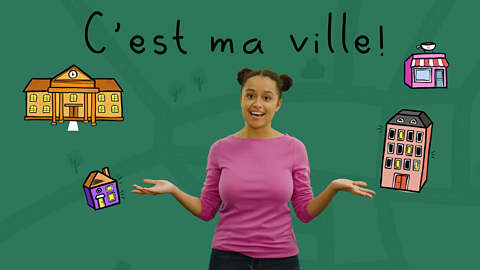
- count8 of 9
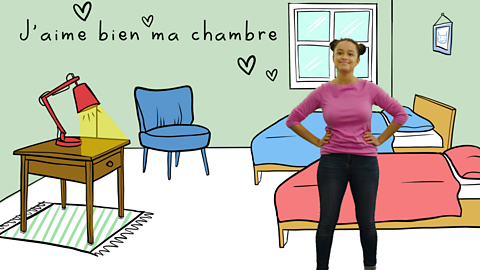
- count9 of 9
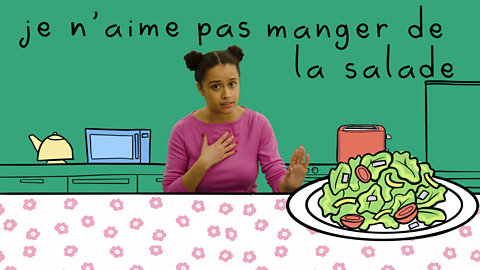
- count1 of 9
